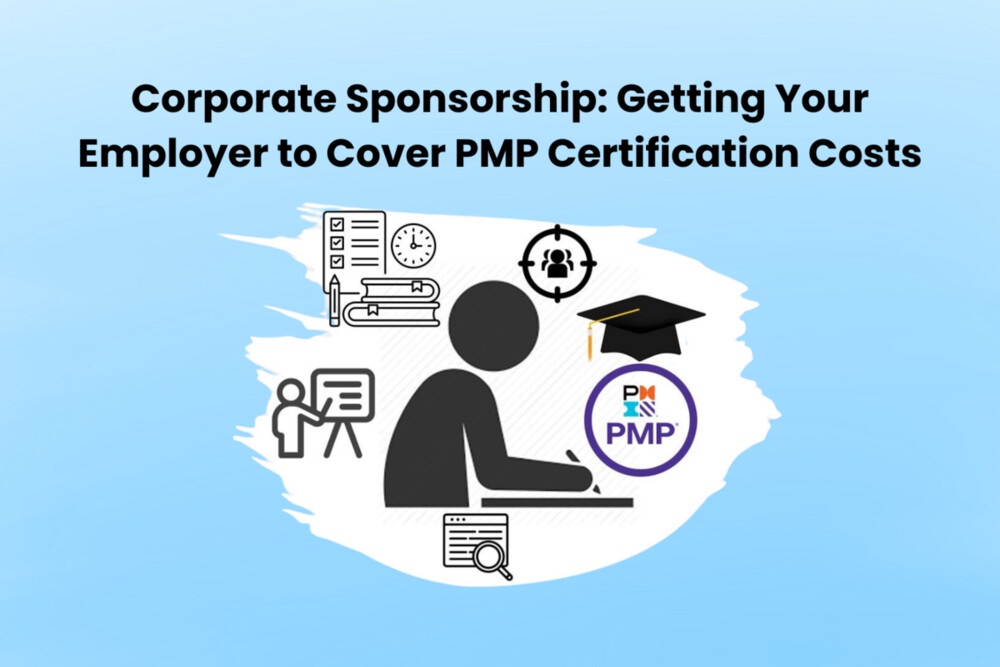Considering advancing your career with a PMP certification? It's a prudent move, but the costs can sometimes be daunting. Fear not, for there's a strategic route you can take: corporate sponsorship. Many employers are willing to invest in their employees' professional development, especially when it directly benefits the company. In this guide, we'll delve into the intricacies of securing corporate sponsorship for your PMP certification, exploring the benefits for both you and your employer, and providing actionable steps to make your case effectively.
Understanding the PMP Certification Cost
Before delving into how to secure corporate sponsorship, let's first understand the PMP Certification Cost itself. The Project Management Professional (PMP) certification, offered by the Project Management Institute (PMI), is globally recognized and demonstrates your expertise in project management. However, obtaining this certification involves several expenses, including exam fees, study materials, and possibly training courses. These costs can add up, making it a significant investment in your professional development.
Benefits of PMP Certification for You and Your Employer
Securing corporate sponsorship for your PMP certification can be a win-win situation for both you and your employer. Let's explore the benefits:
For You:
- Career Advancement: A PMP certification can significantly enhance your career prospects, opening doors to higher-level positions and increased earning potential.
- Professional Recognition: Being a certified PMP lends credibility to your skills and expertise in project management, boosting your professional reputation.
- Skill Enhancement: The preparation for the PMP exam equips you with valuable project management skills that you can immediately apply in your current role.
For Your Employer:
- Enhanced Project Success: With certified project managers leading initiatives, organisations typically experience improved project outcomes, including better cost management and stakeholder satisfaction.
- Competitive Advantage: Having certified project managers on staff can give your employer a competitive edge in winning contracts and attracting clients who value expertise and credibility.
- Investment in Human Capital: By sponsoring employees' PMP certifications, organisations invest in developing their workforce, fostering loyalty and retention while nurturing a culture of continuous improvement.
How to Approach Your Employer for Sponsorship
Now that you understand the benefits, it's time to craft a compelling proposal to present to your employer. Here's a step-by-step guide:
- Step 1: Research Your Company's Policies Before approaching your employer, familiarise yourself with the company's policies regarding professional development and tuition reimbursement. Understanding the process and criteria will help you tailor your proposal effectively.
- Step 2: Highlight the Value Proposition Clearly articulate how obtaining a PMP certification aligns with your role and the company's objectives. Emphasise the tangible benefits, such as improved project outcomes and increased efficiency, that the certification will bring to the organisation.
- Step 3: Prepare a Detailed Plan Outline your study plan, including the resources you'll need and the estimated PMP Certification Cost. Be specific about how you'll balance your studies with your work responsibilities to minimise disruption.
- Step 4: Present a Return on Investment (ROI) Analysis Quantify the potential return on investment for your employer by demonstrating how the benefits of your certification outweigh the costs. Use data and examples to illustrate the financial and strategic advantages.
- Step 5: Be Flexible and Open to Negotiation Be prepared to negotiate with your employer, whether it's regarding the financial aspects or the terms of your study schedule. Show your willingness to collaborate and find a mutually beneficial arrangement.
Navigating Corporate Channels: Identifying Decision-Makers
Successfully securing corporate sponsorship often involves navigating a maze of decision-makers within your organisation. Identify key stakeholders who understand the value of project management and present your proposal directly to them. Whether it's the HR department or your immediate supervisor, align your pitch with their priorities to gain influential backing for your PMP certification pursuit.
Crafting a Persuasive Proposal: Tailoring Your Message
Each company has its unique culture and language. When presenting your proposal, tailor your message to resonate with your organisation's values and strategic goals. Speak their language, emphasizing how your PMP certification aligns with the company's mission, vision, and ongoing projects. A well-crafted, personalised pitch increases the likelihood of garnering support from decision-makers who see the direct relevance and impact on company success.
Conclusion
Securing corporate sponsorship for your PMP certification is a strategic move that can propel your career forward while benefiting your employer. By highlighting the value proposition, presenting a compelling proposal, and demonstrating a clear ROI, you can increase your chances of obtaining financial support for your professional development. Remember, investing in yourself is an investment in your future success.


No comments yet